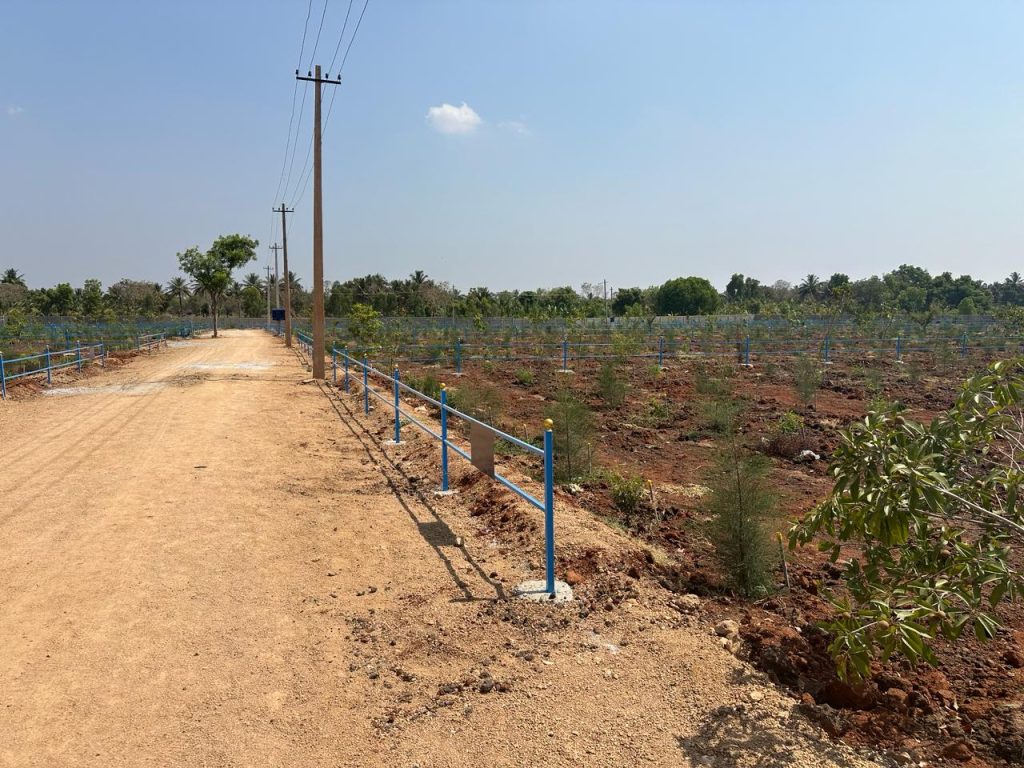
In recent years, managed farmland has emerged as a popular alternative to traditional farming, particularly for those seeking a harmonious blend of investment potential and lifestyle enhancement. With the rise in interest in agricultural land, it’s crucial to understand the key differences between managed farmland and traditional farming. This guide will delve into these differences, helping you make an informed decision when exploring farmland options near Bangalore.
What is Managed Farmland?
Managed farmland refers to agricultural land that is maintained and operated by a professional management team. Unlike traditional farming, where individuals or families typically handle all aspects of the farm, managed farmland is overseen by experts who handle day-to-day operations, crop management, and maintenance. This approach allows landowners to enjoy the benefits of farmland ownership without the need for hands-on involvement.
Benefits of Managed Farmland:
- Expert Management: Managed farmland is tended to by professionals, ensuring that best practices in crop management, irrigation, and pest control are followed. This often results in higher yields and better-quality produce.
- Less Personal Time Investment: Owners can enjoy the perks of farmland ownership without dedicating significant time or effort to farm management. This is ideal for those who wish to invest in agricultural land but lack the time or expertise to manage it themselves.
- Consistent Returns: With a professional management team in place, managed farmland can offer more predictable and stable returns on investment compared to traditional farming.
- Environmental Stewardship: Managed farmland often emphasizes sustainable practices, which can be beneficial for the environment and contribute to the long-term health of the land.
What is Traditional Farming?
Traditional farming involves individuals or families personally managing all aspects of the farm. This includes planting, harvesting, and dealing with market fluctuations. Traditional farmers typically invest a significant amount of time and effort into their operations and have direct control over every aspect of their farm’s management.
Benefits of Traditional Farming:
- Control and Flexibility: Traditional farming allows for complete control over farming practices and decisions. Farmers can adapt their methods and crops based on personal preferences and market trends.
- Personal Fulfillment: For many, farming is a passion and a way of life. The hands-on nature of traditional farming can be deeply satisfying and offers a direct connection to the land and its produce.
- Potential for Innovation: Traditional farmers have the freedom to experiment with new techniques and crops, potentially leading to innovative practices and niche market opportunities.
Key Differences Between Managed Farmland and Traditional Farming
- Management Style: Managed farmland relies on professional teams, while the landowner or their family typically handles traditional farming.
- Time Commitment: Managed farmland requires minimal personal time investment from the owner, whereas traditional farming demands significant time and effort.
- Risk and Return: Managed farmland often provides more stable returns with reduced risk due to professional oversight, while traditional farming can involve greater risk and variability in returns.
- Sustainability: Managed farmland may prioritize sustainable practices, but traditional farming directly implements personal sustainability goals.
Choosing the Right Option for You
When deciding between managed farmland and traditional farming, consider your personal goals, time availability, and interest in hands-on management. If you’re looking for a more passive investment with expert oversight, managed farmland near Bangalore could be a great choice. Conversely, if you have a passion for farming and prefer to be directly involved in the day-to-day operations, traditional farming might be the better fit.
Find Your Ideal Farmland
If you’re searching for agricultural land or farms near Bangalore, whether managed or traditional, there are plenty of options available. Look for properties with clear titles and the potential for long-term growth. Explore farmland for sale near you to find the perfect match for your investment or lifestyle goals.
In conclusion, understanding the differences between managed farmland and traditional farming can help you make a well-informed decision. Whether you choose managed farmland for its convenience and stability or traditional farming for its engagement and control, both offer unique benefits and opportunities.